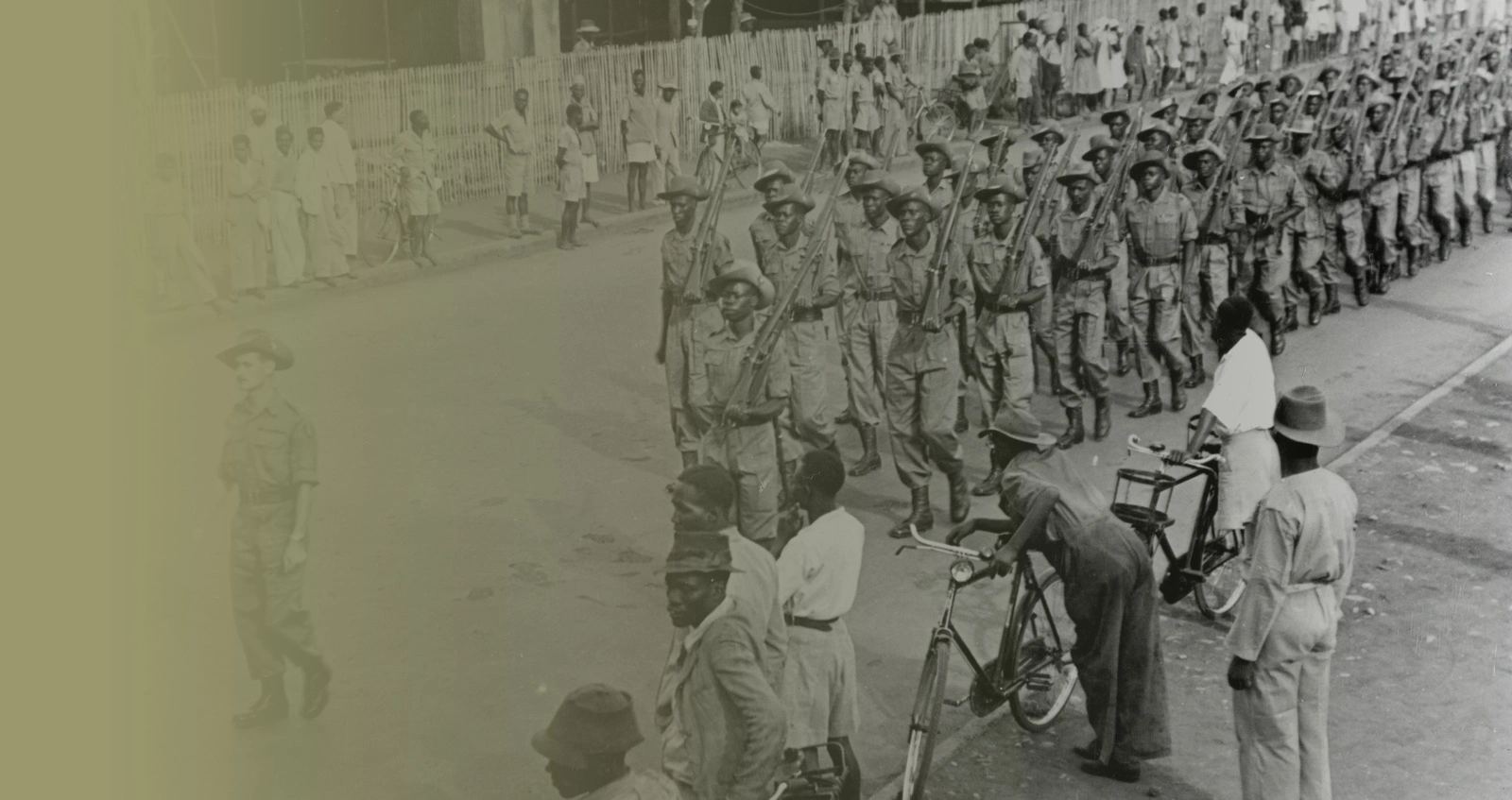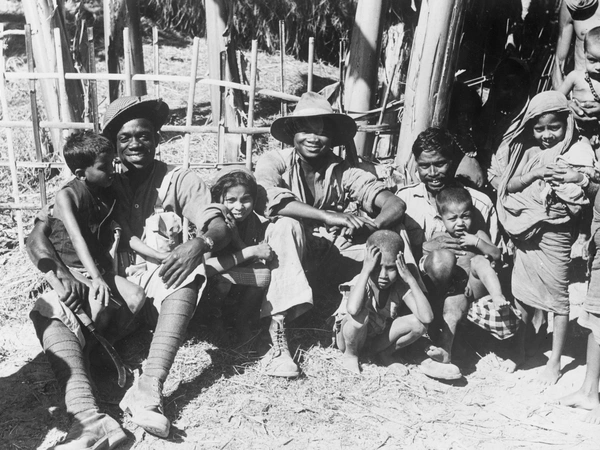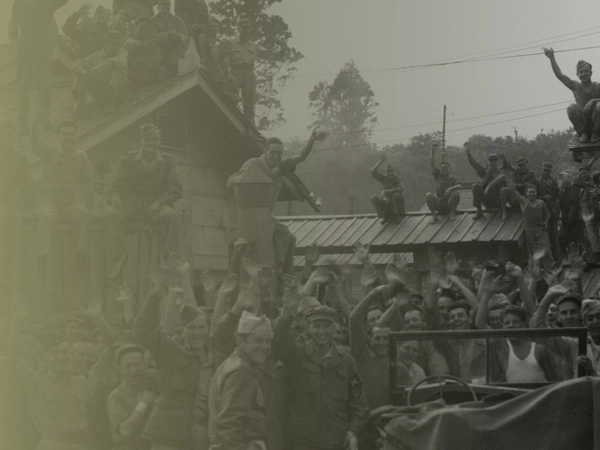As African men from the Fourteenth Army returned home in 1945, they found the war had brought subtle and profound change to the continent.
Attitudes to the relative status of black and white people were shifting, with Seth Anthony becoming the first African commissioned officer, having been through Sandhurst and then served in Burma.
Anthony was just one of over half a million black Africans who joined up.
The Fourteenth Army included three whole divisions of African soldiers – the 11th (East African) and the 81st and 82nd (West Africa) Divisions.
The experience of those thousands of soldiers would shape the post-war trajectory of their countries.
Anthony’s home country - Gold Coast - would go on to become the first British African territory to gain independence in 1957 when it became Ghana.
John Mandambwe
Mandambwe had joined the King’s African Rifles (KAR) in 1939, at the tender age of thirteen.
The KAR was recruited from a number of British colonies in East and Southern Africa, and Nyasaland contributed 28,000 soldiers in the Second World War.
Mandambwe was sent first to Egypt, and fought in the great battle of El Alamein, at the age of sixteen.
In 1943 his battalion left Africa for the first time, sailing via Ceylon to India, where they joined the 11th East Africa Division, part of General Slim’s Fourteenth Army.
There were 14 African battalions in the Fourteenth Army, from KAR and Southern and Northern Rhodesia.
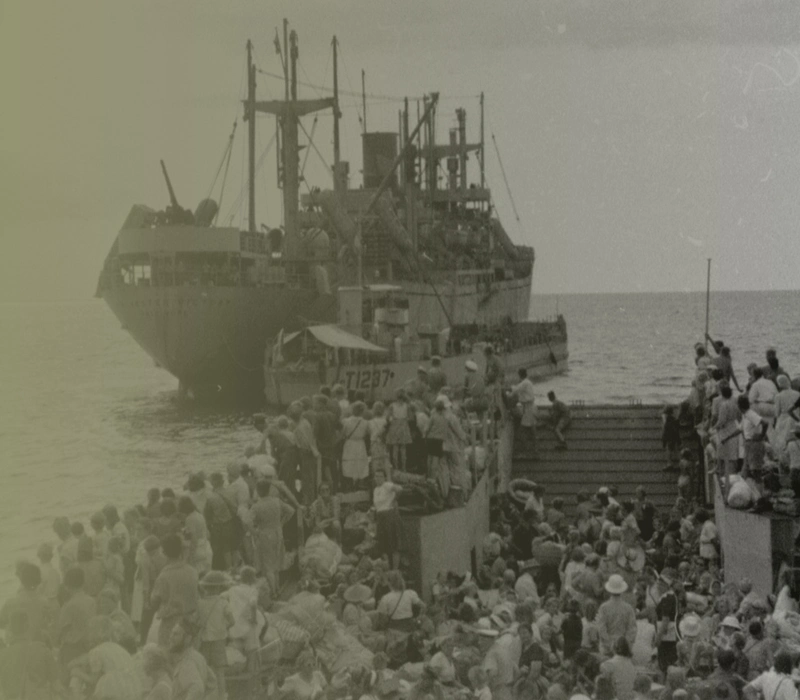
After I came back from the war for two years I was still hearing the bullets...Every day and night!
Unlike in the First World War, and other parts of the world, the Africans among these forces were not simply labourers in uniform, but fighting troops that took a leading role in the advance into Burma.
Mandmabwe left India on 11 September, a Staff Sergeant aged just 19. Like many veterans of the jungle, Mandambwe carried the impact of the war inside him:
"After I came back from the war for two years I was still hearing the bullets, aeroplanes, hunnnggg. Every day and night!"
He was able to conquer his feelings. He found work on the railways and then as a teacher, before being ordained a priest, and lived well into the 21st century, until his death in 2017.
Kofi Genfi
His 7th battalion joined in the second Arakan offensive, and he recalled just how tough the jungle was during the monsoon:
"To be in the Burma jungle is the hell. The climate there was so hot. In certain places the sweat would soak through your shirt – we were served with salt and water to drink…If you are not lucky there will be heavy rain, and then you will sleep in the rain like a frog."
The fighting was tough, and Kenfi had to become tough himself:
"On the battlefield you see a friend lying dead, but you’re pushing on. You have not the time to wish for him. You take his gun and bullets, and you go. Leaving him is not a small thing. As you climb the mountain, you are crying: “Oh… Oh… oh” It is not a small thing."
When he came home in 1945, he had difficulty fitting in after his experiences in Burma.
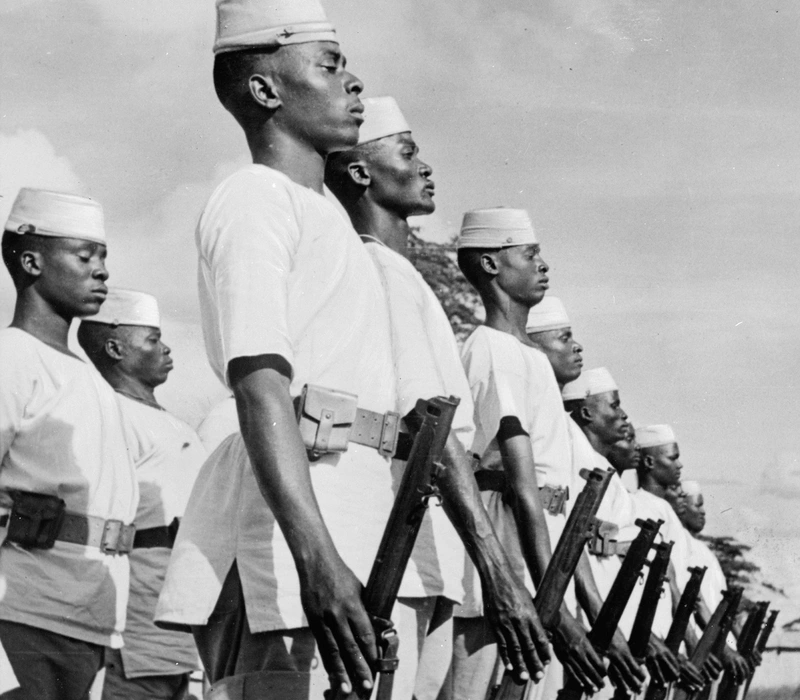
People found that we had changed; in character, in habits.
"We became callous. If I am to dwell on character – we became unfeeling, because of the things we had seen. If someone got wounded and blood was coming, it was not horrible to you… Most people here categorised us as madmen."
Like many African soldiers employed by the British, he felt the inequalities keenly. He was paid much less than the white NCOs, and there was no chance of becoming an officer."
"We felt we had not been treated fairly over pay and promotion. That attitude brought about our fight for independence.
"There was segregation in the regiment; the white NCOs had a separate mess from black NCOs, but the whites painted their faces black in the jungle so they wouldn't stand out from their troops."
When he came back to Kumasi, he started working in the civil service. He became involved in politics, and was involved in the National Liberation Movement, later becoming a member of parliament.

